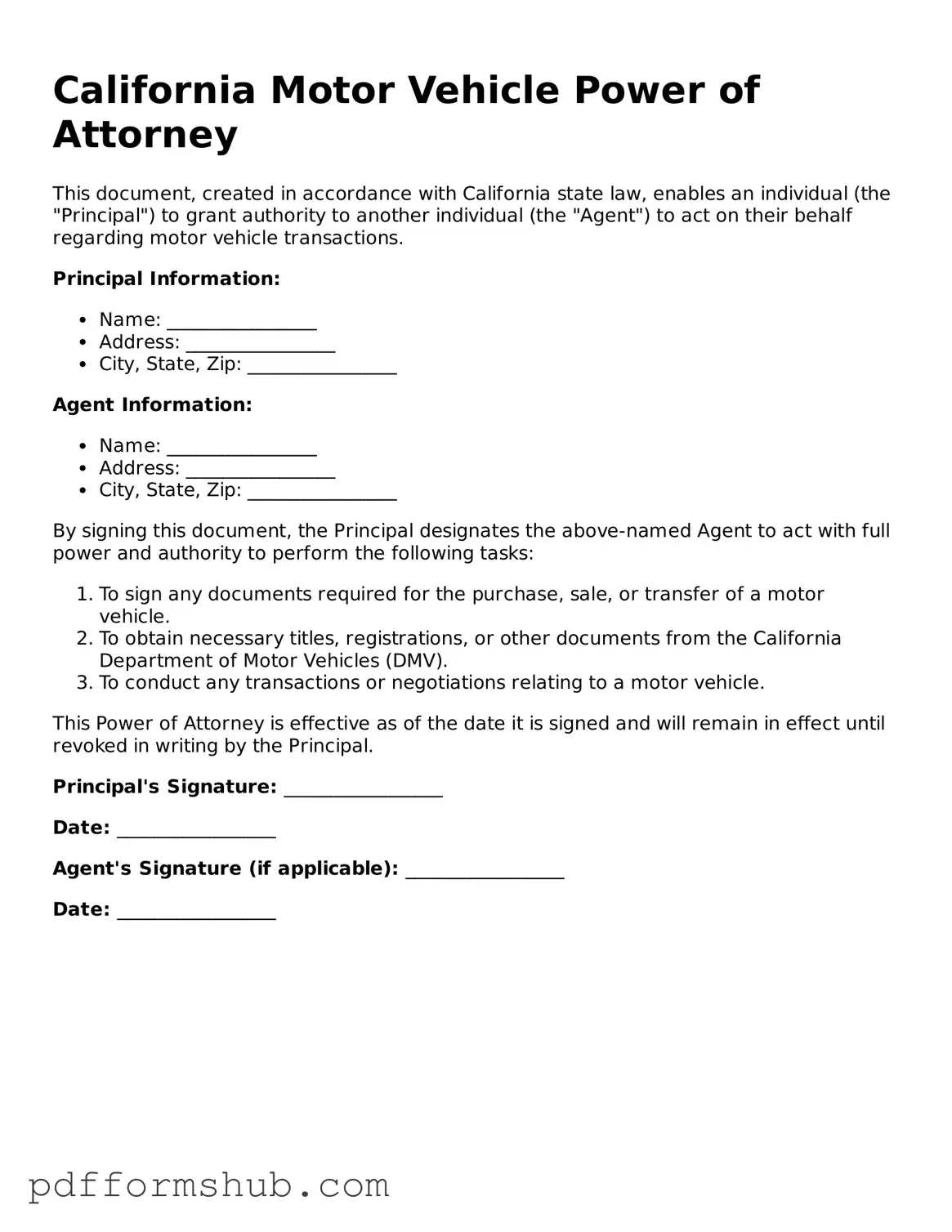Attorney-Verified Motor Vehicle Power of Attorney Form for California State
The California Motor Vehicle Power of Attorney form is a legal document that allows an individual to designate another person to act on their behalf regarding motor vehicle transactions. This form is particularly useful when the vehicle owner is unable to be present for tasks such as registration, title transfer, or other related matters. Understanding how to properly complete this form can ensure that your vehicle affairs are managed smoothly and efficiently.
If you are ready to take the next step, please fill out the form by clicking the button below.
Customize Form

Attorney-Verified Motor Vehicle Power of Attorney Form for California State
Customize Form

Customize Form
or
Free PDF Form
Short deadline? Complete this form now
Complete Motor Vehicle Power of Attorney online without printing hassles.